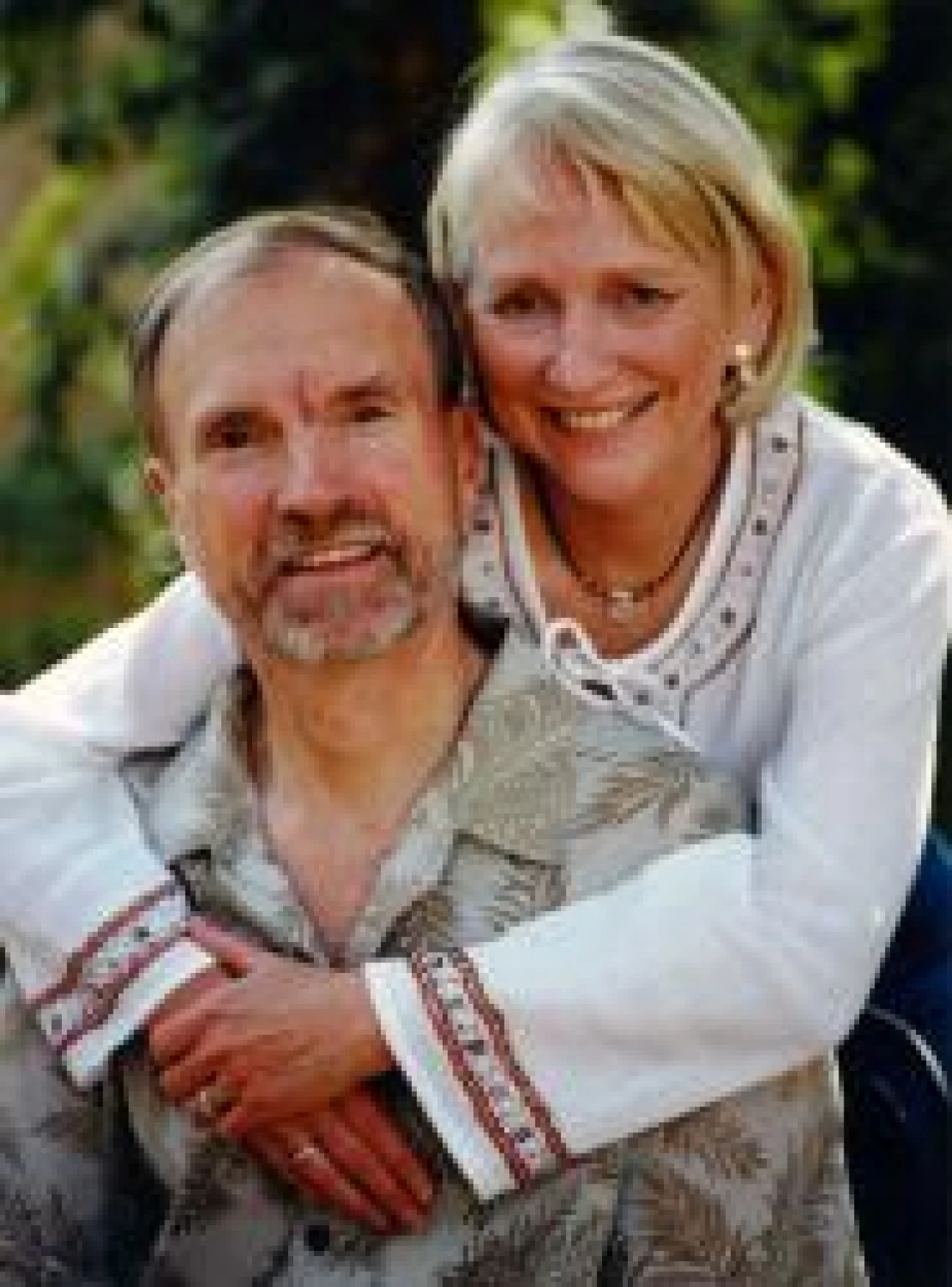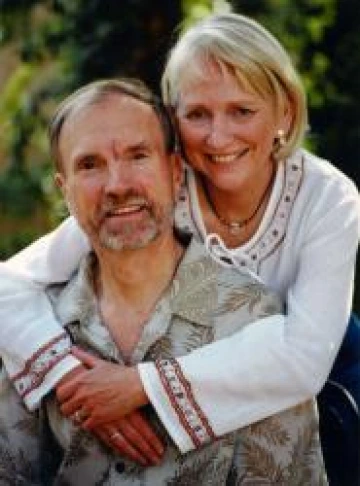UA Cancer Center Fondly Remembers Dr. Tim Bowden

University of Arizona physicians and researchers remember Dr. Bowden as a “friend, mentor, passionate scientist and remarkable human being.”
Media Contact: Anna C. Christensen, 520-626-6401, achristensen@email.arizona.edu
May 23, 2018
TUCSON, Ariz. – It is with great sorrow that the University of Arizona Cancer Center shares the

news that George Timothy (Tim) Bowden, PhD, passed away on May 15. Diane Bowden, his wife of more than 50 years, was at his side.
“Dr. Bowden was a world-renowned cancer biology researcher who made significant contributions to our understanding of cancer prevention and treatment while here at the UA,” said Carol Gregorio, PhD, head of the UA Department of Cellular and Molecular Medicine. “I am confident that the strong spirit of research he championed, especially among our trainees, will live on, both here in the department and at the UA Cancer Center. The Department of Cellular and Molecular Medicine is deeply grieved by the loss of Dr. Bowden. Our thoughts are with his wife, Diane, during this difficult time.”
Dr. Bowden was a professor emeritus at the UA Cancer Center and a founding member of the Cancer Biology Graduate Interdisciplinary Program. He received his doctorate in experimental oncology from the University of Wisconsin, Madison. Over the course of his career at the UA Cancer Center, he served as chief scientific officer and director of research education, while simultaneously heading the Cancer Biology Graduate Interdisciplinary Program, acting as principal investigator on the Cancer Biology Training Grant and funding his own lab.
“He served in my administration as a chief scientific officer, and did a wonderful job establishing interactions between basic, translational and clinical scientists,” recalled David Alberts, MD, director emeritus of the UA Cancer Center.
“Unfortunately, I did not get a chance to work with Tim,” added Andrew Kraft, MD, UA Cancer Center director. “He was an outstanding scientist with a national reputation. He and his wife were extremely supportive of student education. Tim Bowden will be missed by all at the University of Arizona Cancer Center.”
A dedicated researcher
Skin cancer was the focus of Dr. Bowden’s research, although he also studied prostate cancer and how cancer starts. Much of his work was funded by the National Cancer Institute’s Skin Cancer Program Project Grant, which brought tens of millions of dollars to the UA Cancer Center. Dr. Bowden’s lab investigated cancer preventive agents, including drugs that could be applied to sun-damaged skin to reduce skin cancer risk.
“Dr. Bowden was world famous for his work on ultraviolet light-induced skin cancer and was very highly regarded as a scientist,” Dr. Alberts said. “That was his passion — he really created a whole field of research and training.”
Dr. Bowden helped identify molecules in the body that respond to UV light exposure; these molecules can change as skin cells become cancerous. He believed that studying how these molecules changed during a cell’s journey to cancer could reveal places in the process that could be “targeted” by novel pharmaceutical agents or certain natural products, helping people at high risk of skin cancer reduce their risk.
Zigang Dong, MD, DrPH, executive director at the Hormel Institute at the University of Minnesota, was one of Dr. Bowden’s closest collaborators.
“My first grant was in collaboration with Tim,” he recalled. “He was a world leader in skin cancer and skin cancer prevention research. He discovered many functional pathways in skin carcinogenesis and found multiple targets for the prevention of skin cancer.”
Dr. Bowden helped establish the Skin Cancer Institute, which was launched in 2005 to promote sun safety and support research in skin cancer.
“The Skin Cancer Institute at the UA Cancer Center will continue to carry on his legacy,” said Clara Curiel, MD, director of the Cutaneous Oncology Program.
A beloved mentor
Dr. Bowden mentored more than 25 postdoctoral fellows, 20 doctoral students, five master’s degree students and several dozen undergraduate students. He also served on supervisory and dissertation committees for 88 doctoral students.
“Dr. Bowden’s bright mind and mentorship style will be greatly missed,” said Dr. Curiel. “The quality of his scientific work coupled with his humbleness and kindness represent an inspiration and role model to everyone who had the honor of working with him.”
Many UA Cancer Center members started their careers with Dr. Bowden at their sides, guiding them through their educations as a gifted mentor and teacher.
“Tim invited me into his lab as an undergraduate summer student in 1998, and I continued working in his lab through graduate school. He has been more than a mentor ever since,” recalled Betsey Wagener, PhD, of the Skin Cancer Institute. “Tim was generous and gracious to his lab team, treating us as members of his extended family, and he never failed to give credit to those who worked with him. He expected the best from people and we all worked hard to live up to his expectations.”
“He often started lab meetings by asking what hypothesis we were testing, and whether we knew how our drug or protein of choice worked,” added Sally Dickinson, PhD, assistant professor in the UA Department of Pharmacology and member of the Skin Cancer Institute. “This back-to-basics approach was very helpful to me as a new graduate student. When I became a postdoc in his lab a few years later, I began to realize the impact that my mentor had on the overall function of the Cancer Center.”
“Dr. Bowden was one of my mentors as a postdoctoral researcher at the University of Arizona,” said Anne Cress, PhD, professor of cellular and molecular medicine and radiation oncology. “He was an inspiring mentor, demanding excellence and expecting persistence and productivity. He was a model for us to follow and his legacy will be through those he trained and the environment he produced. He brought Nobel laureates to student dinners at his home and this made a lasting impression on everyone.”
A generous philanthropist
 Tim and Diane could frequently be seen hiking up Mount Lemmon or wending the trails of Sabino Canyon. In 2007, Dr. Bowden was diagnosed with Parkinson’s disease, a degenerative condition that can lead to a rapid decline in balance and motor skills.
Tim and Diane could frequently be seen hiking up Mount Lemmon or wending the trails of Sabino Canyon. In 2007, Dr. Bowden was diagnosed with Parkinson’s disease, a degenerative condition that can lead to a rapid decline in balance and motor skills.
Instead of being sidelined by his diagnosis, Dr. Bowden combined his love of the outdoors with his scientific curiosity. He learned about research showing that certain intense exercises can ease many Parkinson’s symptoms, and incorporated them into his own routine. Tim and Diane promoted Parkinson’s-specific physical activity to the greater community, helping to found PWR!Gym, an exercise and wellness center offering programs specific for Parkinson’s patients. In 2011, their 15-mile trek up Mount Lemmon took them up 5,000 feet and raised more than $10,000 for the gym.
In life, Dr. Bowden was a prolific mentor, and even after retirement he continued to support learning opportunities for UA Cancer Center students through the Tim and Diane Bowden Cancer Biology Research Fund. The couple also arranged to leave their estate to the UA Cancer Center.
“We want to see the Cancer Biology program flourish,” said Dr. Bowden at the time. “Diane and I do not have children, so we see these students and mentees as our extended family.”
By championing the educations of cancer biology graduate students, the Bowdens’ legacy will propel cancer research into the future.
“Dr. and Mrs. Bowden’s generosity will reverberate through the University of Arizona for many years to come,” said Cheryl House, chief development officer for UA Health Sciences.
“Dr. Bowden’s memory will live on through those he knew, but also through our Cancer Biology Graduate Interdisciplinary Program — a program he and his wife made sustainable through their continuing support so we can train the next generation of cancer research scholars,” added Dr. Cress.
A cherished friend
Dr. Bowden’s friends all share fond memories of his love for science and the outdoors, and the warmth he showed to those around him.
“Tim demonstrated how to enjoy life to its fullest,” recalled Dr. Wagener. “He loved his research, laboratory staff, colleagues and trainees unconditionally. He also balanced his hard work in the lab with his love of outdoor activities: hiking, backpacking, kayaking, photography, fly fishing … the list goes on. I will always remember Tim as a friend, mentor, passionate scientist and remarkable human being.”
“While Parkinson’s slowly robbed Dr. Bowden of his health, his intellect remained sharp until the end,” Dr. Dickinson added. “Recent visitors report that he remembered their old times together and enthusiastically showed them new projects and pictures of his travels. Dr. Bowden lived his life as an example of hard work, discipline and generosity.”
Tim and Diane were junior high school sweethearts in Cincinnati and married in 1966. In 1978, Dr. Bowden’s appointment to the Department of Radiology brought the couple to Tucson, where they made their home and cultivated lifelong friendships.
“He and Diane became very good friends of mine over the years,” said Anne Cione, Dr. Bowden’s administrative assistant and graduate program coordinator for nearly two decades. “He will be missed.”
“While Dr. Bowden was a terrific scientist, most of us will agree that it was his kind and considerate approach to almost everything he did that was so remarkable,” said Dr. Curiel. “He and Diane were one of the most supportive and loving couples I have ever met.”
“We had a tremendous friendship. He was one of the most wonderful gentlemen,” recalled Dr. Alberts. “He made the word ‘gentleman’ mean something.”
A celebration of life for Tim Bowden will be held on Thursday, June 28, in the UA Cancer Center's Kiewit Auditorium, 1515 N. Campbell Ave. A gathering for the university community will be from 10 a.m. to noon, followed by lunch. A session from 1-3 p.m. is for family and friends (and anyone else wanting to attend). Attendees can go to one or both sessions. Please RSVP by June 20 via https://doodle.com/poll/hwe2g76ps7caesvv.
PLEASE NOTE: Diane Bowden has requested that, in lieu of flowers, donations be made to the Tim and Diane Bowden Cancer Research Fund, 520-621-5590, or PWR!Gym, 520-591-5346.
About the University of Arizona Cancer Center
The University of Arizona Cancer Center is the only National Cancer Institute-designated Comprehensive Cancer Center with headquarters in Arizona. The UArizona Cancer Center is supported by NCI Cancer Center Support Grant No. CA023074. With its primary location at the University of Arizona in Tucson, the Cancer Center has more than a dozen research and education offices throughout the state, with more than 300 physicians and scientists working together to prevent and cure cancer. For more information: cancercenter.arizona.edu (Follow us: Facebook | Twitter | YouTube).



